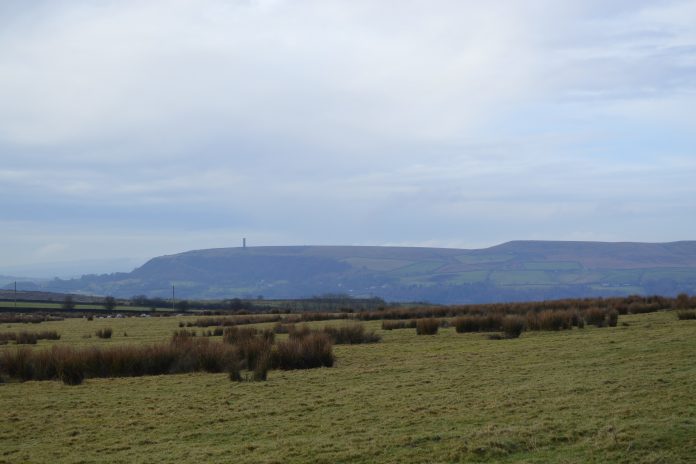-
A project designed to showcase natural flood management techniques and restore peatland on treasured local moorland is about to start.
-
Works form part of the £40m Radcliffe and Redvales Flood Risk Management Scheme and aim to deliver numerous, small-scale, ‘slow-the flow’ interventions in the River Irwell catchment helping to protect properties downstream.
Delivered by the Environment Agency, working through the Moors for the Future Partnership, the ambitious venture forms part of the £40m Radcliffe and Redvales Flood Risk Management Scheme. £476k of additional Defra funding has been allocated, as part of the design process, for use on collaborative projects that will complement the capital scheme and further reduce flooding to communities at risk.
The works, which will help slow the flow of flood water in rapidly responding catchments such as Irwell Vale, Strongstry, Chatterton, Ramsbottom as well as the high risk area of Radcliffe and Redvales focus on numerous, small-scale, ‘slow-the flow’ interventions that will help protect properties from the risk of flooding.
On Holcombe Moor stone dams will be erected in eroded gullies to restrict the flow of flood water. Initially, this work will be carried out in the Alden Ratchers area by transporting stones by helicopter from a nearby quarry. Sphagnum moss will also be reintroduced to allow the top layers of the peat to retain more water.
Peter Costello, Area Flood and Coastal Risk Manager for the Environment Agency said:
“The commitment of multiple agencies to work together and explore nature based solutions alongside traditional flood defences, is a powerful component of Greater Manchester’s response to the Climate Emergency. There has already been some fantastic work delivered in partnership across the River Irwell catchment over the years to help slow the flow of floodwaters using natural flood risk management techniques. But we need to do more. We hope that our work at Holcombe Moor will be a catalyst for more of these measures to be installed across Greater Manchester catchments.”
Matt Scott-Campbell, Programme Manager for Conservation and Land Management at Moors for the Future Partnership, said:
“With extreme weather events becoming more frequent, the valuable opportunity and need for healthy peatlands to slow the flow of water into the valleys below becomes more and more important. This project will have biodiversity, carbon capture and natural flood management outcomes, directly linking the benefits of a healthy upland landscape to downstream communities at risk of flooding in Rossendale and Greater Manchester. The restoration of degraded peatlands can make an important contribution to reducing flood risk, whilst also achieving other valuable benefits, for example this project will also improve the capacity of Holcombe Moor to absorb carbon, supporting our efforts to respond to the climate emergency.”
The natural flood management project forms part of the Environment Agency’s overall vision to develop flood management schemes that will not only reduce the risks to local communities, but also tackle climate change through carbon capture and new habitats for wildlife. The works on Holcombe Moor are expected to restore the capacity of peatland to absorb carbon and improve blanket bog habitat, which in turn will help the recovery of breeding moorland bird like golden plover and dunlin.







